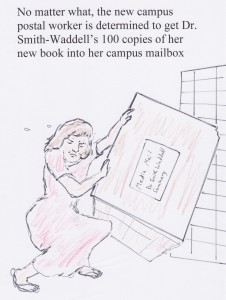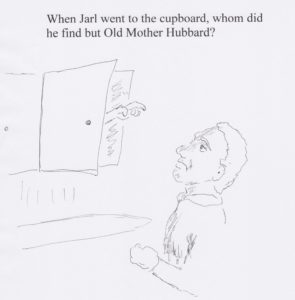The test: Have Joseph’s brothers changed?—Genesis 44:1-12
Joseph orders his household manager to return his brothers’ money in their sacks and also to place his silver cup in Benjamin’s sack (44:1-2). A drinking cup could be an official’s precious possession (cf. Pharaoh’s cup in 40:11, 13, 21, though the narrator uses a different Hebrew term there). Here it also is something that was obviously present at the meal that Joseph shared with his brothers, although he had been seated apart from them (43:30). Planting this cup in Benjamin’s sack will make it appear that Benjamin had stolen Joseph’s cup during the banquet.
Wronging one’s dinner host was a heinous offense, since shared meals were supposed to create a relationship among those who ate together (Ps 41:9). Their alleged theft thus apparently returns evil for good; in point of fact, they actually already had done “evil” to Joseph, although God had turned it for good (Gen 50:20). That the cup was used for divination (44:5) will sound plausible to the brothers; Egyptians did often use fluids for divination. That Joseph practiced “divination” with this cup (44:5) is surely untrue (cf. Deut 18:10), but again may relate to something true: Joseph was divinely blessed to interpret dreams, including dreams about royal cups (Gen 40:11). Joseph’s supposed ability to divine (even without the cup, 44:15) will explain why Joseph knows so much about them (43:33) and reinforce their fear that God has exposed their past sin (44:16)—which in fact he has, although in a way quite different from what they suppose.
Could Joseph’s plan have gone awry? Possibly, but failure was not likely; the strategy appears to have been planned fairly carefully. What would have happened had the brothers, remembering their previous experience, thought to open their sacks before Joseph’s steward reached them? Even in the mouth of the sack (44:1-2), one might have to dig inside and not simply open the sack to find it (44:11-12); still, they undoubtedly would not need to dig far. Yet it would appear rude to examine the sacks in front of their hosts, and if they discovered the money afterward, their options would be limited. They would have needed to either return with the money, risking possible accusations if (as Joseph might arrange) they were intercepted before returning it, or decide to go on to Canaan with it. Joseph’s steward forestalls any possibility of the latter course in any case by intercepting them quickly, barely outside the city (44:4). Joseph’s plan to stage Benjamin’s arrest could fail only if the brothers offer violent resistance, for which they are presently ill-equipped against Egypt’s might, or if they discover the cup in advance and remove it (especially if they discard it).
Why does Joseph set Benjamin up for arrest? The narrative has already been clear that Joseph harbors no ill-will toward his younger brother, but cares for him deeply (43:29-30, 34). Instead, Joseph wants to take in Benjamin, and must also know whether his other brothers can now be trusted. If the brothers abandon Benjamin to be a slave as they sold Joseph as a slave, Joseph will know that they have not changed. Joseph may expect that, after Benjamin’s momentary dismay at being abandoned, Benjamin will learn Joseph’s identity and find himself at home in Joseph’s courts and the comforts of Egypt. In truth, neither Benjamin nor his brothers would be willing to bring such pain to their father. Joseph, however, cannot know this and he also currently has no access to his father except through these brothers, whom he so far has little reason to trust.
The steward intercepts the brothers just outside the city, as planned (44:4). Accused of having stolen the cup, the brothers emphatically deny it. They do not know whether the supposedly stolen cup is silver or gold (44:8); both were expensive substances often mentioned together (e.g., 13:2; 24:35, 53). That Joseph’s cup is silver (44:2), however, is significant for the narrative, because it was silver for which Joseph’s brothers had earlier sold him.
Forgetting that they previously discovered unexpected money in their sacks (42:27), as if it were a fluke, the brothers speak overconfidently. They dangerously assert that any of them with whom the cup is found shall die (44:9). Jacob had earlier offered just such an assertion regarding Laban’s stolen teraphim, not knowing that Rachel had stolen them (31:32). In that case, Rachel escaped punishment because she was not caught with the stolen property; in this case, however, Rachel’s younger son Benjamin is found with the “stolen” merchandise.
The overconfidence of Benjamin’s brothers has left them no defense. They offered the thief’s life and the others’ enslavement, so Joseph’s steward has already been merciful by requiring the accused one to be merely a slave, allowing the others to go their way (44:10). They can thus go their way without Benjamin—if they are willing.
Believing that God earlier put money in their sacks (42:28; 43:23), the brothers can only assume that God has done the same this time—and also planted the silver cup in Benjamin’s sack. They have already understood that some misfortunes have befallen them, such as the captivity of another brother, because of what they had done to Joseph (42:19, 21).
God knows and can expose the secrets of human hearts (see e.g., Gen 4:9-10; 18:13-15). Indeed, the brothers’ belief that God is exposing them is in a sense correct: through Joseph, God is giving them another chance to decide whether they will act as they once acted with Joseph. They can leave for Canaan with this new gift of silver if they will abandon their brother Benjamin as a slave. They face the test of Joseph afresh: will they again act out of greed and self-interest rather than out of concern for their brother?
Sometimes in his kindness God brings us back to the same tests we have failed before. He is giving us the chance to show that we have changed.
Does the Holy Spirit bestow spiritual gifts that aren’t mentioned in Scripture?
Does Paul list all the spiritual gifts in 1 Corinthians 12:8-10? (1 minute, 14 seconds)
Where miracles happen most (2 minutes)
Where miracles seem to happen most: 2-minutes and 17-minute interview at Oxford:
School cafeteria
Matthew 24-25
Session 17
Jesus speaks of judgment on the temple and ultimately about his return in Matthew 24-25. This is a one-hour free lecture.
Campus post office cramming (cartoon)
Feasting in Joseph’s house—Genesis 43:26-34
When they are taken to the vizier’s house, Joseph’s brothers expect to be enslaved (43:18). Instead, shockingly, the involuntary guests now find their visit the occasion for a feast. Joseph’s order to slaughter an animal for the meal (43:16) suggests a feast, undoubtedly with more meat than the guests could eat. The meal, possible because of Joseph’s foresighted storage of grain for people and animals, contrasts with the famine back home (43:1-2). What would be most shocking to the guests, however, is the transition from being detained as suspected spies during a previous visit (42:16-17)—with Simeon remaining in custody until their return (42:24)—and their present welcome. The key difference here is that Benjamin is now with them (43:16).
This time all eleven of his brothers are together to bow down to Joseph (43:26, 28), as in Joseph’s dreams (37:7, 9). (Perhaps his father can be understood as doing so in 47:31, but his mother, deceased long before this point, obviously cannot, unless indirectly through her son Benjamin [43:29]; probably we are meant to understand that the spirit of the dream in 37:9 is fulfilled, rather than expecting the fulfillment of all its literal details.)
Joseph asks about their welfare and especially that of their aged father (43:27). To inquire about another’s welfare was polite and natural (e.g., Exod 18:7; Judg 18:15; 2 Sam 11:7; Jer 15:5), so much so that in some texts translators often treat it as a mere greeting (many translations of 1 Sam 25:5; 30:21). Joseph, however, has special concern about his father, who is aged; happily, he remains alive (Gen 43:28).
As Joseph sees his brother Benjamin, however, he rushes out because he was moved (43:29-30). A term used here for his compassion (MyImSjår) appears in this form only once elsewhere in Genesis—quite recently, in 43:14, where Jacob prays that God Almighty (El Shaddai) will grant them compassion in the Egyptian official’s sight, to send them and Benjamin away safely. Clearly God here is answering Jacob’s prayer, though no one present at the time realizes this. Joseph’s love for Benjamin underlines by way of contrast his brothers’ past hard heart toward him, though as the narrative progresses it becomes increasingly clear that his brothers have become much more brotherly.
Their seating by birth rank astonishes the brothers (43:33); the term for astonishment here is usually an unhappy astonishment (it appears negatively in Job 26:11; Ps 48:5; Isa 13:8; 29:9; Jer 4:9; Hab 1:5). How does Joseph know so much about them? This special knowledge will gain credence, however, for his later claim to divine knowledge (44:15; cf. 44:5), reinforcing their recognition that God is the one who has exposed their sin (44:16).
Joseph’s generosity, especially toward Benjamin (43:34), will likewise highlight their apparent ingratitude in supposedly stealing from him (44:4). For now, however, experiencing Joseph’s generosity, his brothers lower their guard to the extent of even becoming drunk (the normal sense of the final verb in 43:34, which is the same verb used of Noah’s drunkenness in 9:21). Joseph does not yet observe enough details to know whether they have changed.
God’s Patience (1 minute, 45 seconds)
Why was God so patient and gracious toward Israel in the Old Testament?




